History of heart rate monitors
Now there is a fashion for smart watches and sports, and smart watches for athletes and fitness trackers.
One of the important functions of such gadgets is heart rate measurement. Before I opened Habr and started writing this post, I didn’t know that the first wireless ECG heart rate monitor was invented in 1977 - for the Finnish national ski team ... And now the usual-looking clock can transmit to Android or iOS various data, such as activity, the number of climbs on the stairs, and, of course, the pulse and much more.
What old heart rate monitors (and new ones) should be still in the review? Write in the comments, please!
')

The company Polar, established in 1977, became the manufacturer of the first miniature ECG heart rate monitor. And then, for the production of heart rate monitors, Polar was formed, the pioneer of the industry. The company received a patent for "Optical Pulse Sensor".
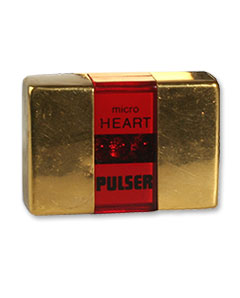
A year later, the first version of the heart monitor for mass production appeared on the market.
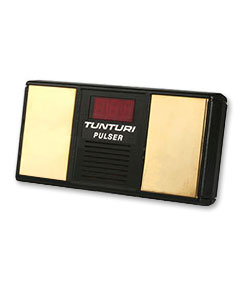
Three more years passed - and the company issued the world's first sports smart watch Polar Sport Tester PE 2000. Of the pleasant things - the watch itself, an alarm clock, a heart monitor and a couple of other functions.
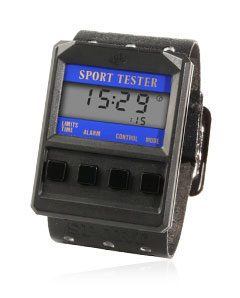
In 1985, Polar Electro received a patent for a wireless heart rate measurement, and in 1987 released the next version of the sports watch - the PE 3000. This watch made it possible to analyze the data obtained during workouts using a computer.
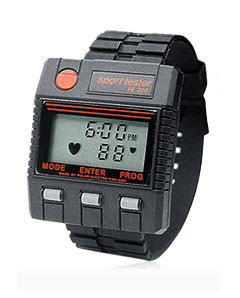
This Polar Cyclovantage monitor is designed for cyclists. In addition to measuring the pulse, he measured the speed and distance.
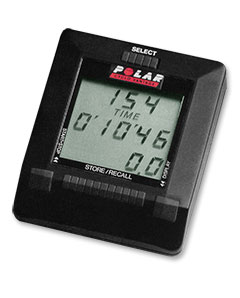
In 1992, the T40 chest pulse meter was released - a heart rate signal transmitter worn on the athlete's body. It is waterproof, so it could be used in almost any conditions.
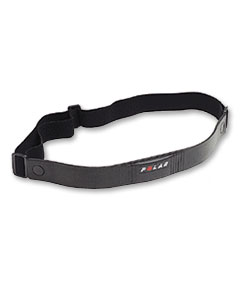
Polar Vantage NV received a unique recording function of heart rate variability in 1995.
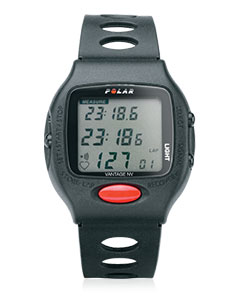
Polar AXN 2004 is a watch for extreme lovers. Functions include compass, altitude, heart rate, and energy.
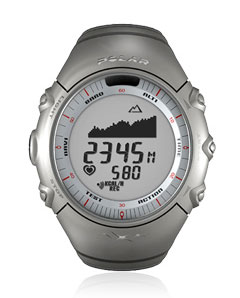
Polar RS800 features such as step frequency, step length and running index. 2006
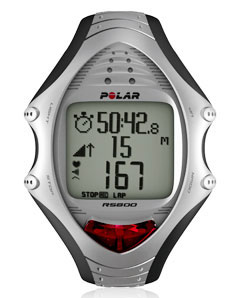
The Polar AW200 Physical Activity Monitor determines the quality and quantity of your activity per day. 2007 This is similar to what Nike will later introduce to the FuelBand.
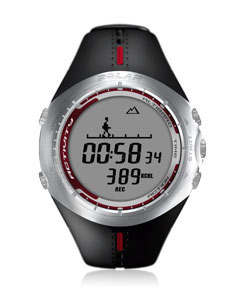
When using a cardio belt, Suunto Quest watches take pulse information, from which they calculate the exact calorie consumption and calculate the intensity of the workout.
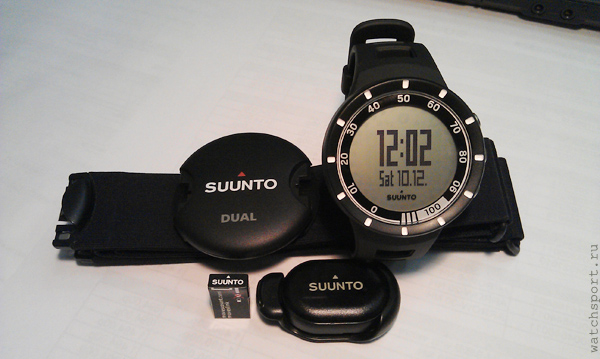
In 2012, the company MIO introduced the wrist heart rate monitor without chest strap sensor Alpha Mio. Under the link - the interesting testing of the device published on Habré. The clock is synchronized with some models of Android smartphones and with iPhone 4s / 5 / 5s.
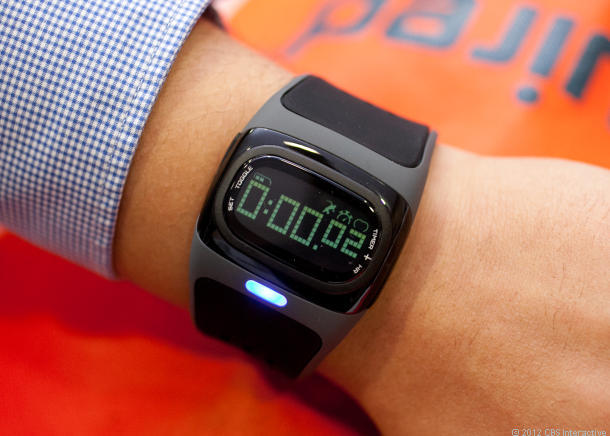
Adidas is also not far behind competitors: miCoach Smart Run measures pulse, running pace, GPS keeps route. There is also 3 gigabytes of internal memory for the player - you will need a wireless headset from the same manufacturer ( correct, if not right ). An important fact is that here the heart rate monitor works on laser technology, calculating the frequency of contractions of the capillaries. Most often just measure the strap
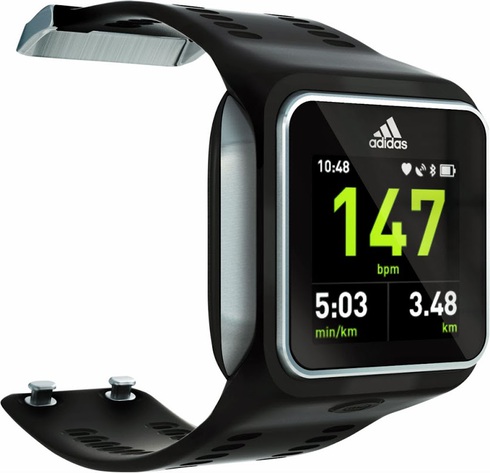
Withings Pulse - pedometer with finger pulse meter. The network component is also important: you can compare your activity with other people on a special page.
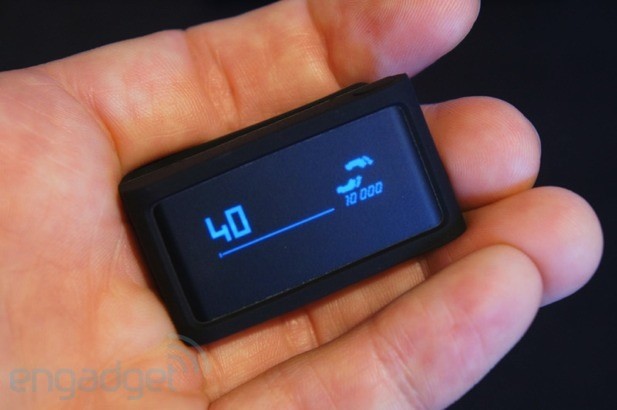
And this fitness tracker is probably the smartest at the moment. Firstly, Atlas Fitness Tracker has a very large display - not to take the smartphone with you to the gym, secondly, its main feature is guessing the exercises that the owner performs, according to heart rate, position change and other parameters.
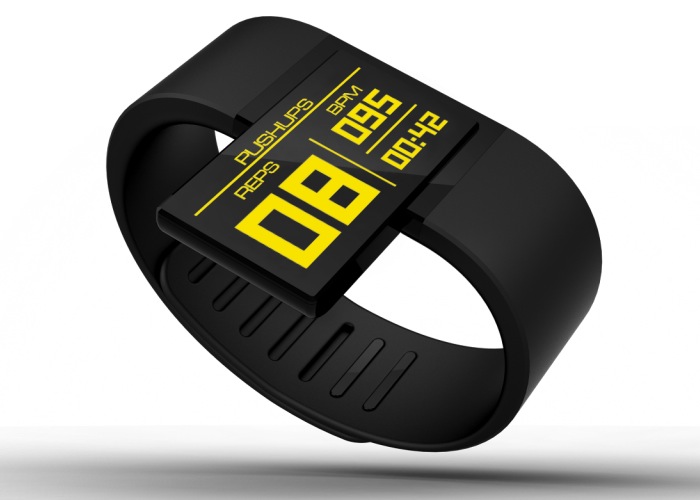
It is interesting:
To health! Wearable devices in sports and medicine
Expanding opportunities
The history of smart watches
Sports tracker overview
One of the important functions of such gadgets is heart rate measurement. Before I opened Habr and started writing this post, I didn’t know that the first wireless ECG heart rate monitor was invented in 1977 - for the Finnish national ski team ... And now the usual-looking clock can transmit to Android or iOS various data, such as activity, the number of climbs on the stairs, and, of course, the pulse and much more.
What old heart rate monitors (and new ones) should be still in the review? Write in the comments, please!
')

The company Polar, established in 1977, became the manufacturer of the first miniature ECG heart rate monitor. And then, for the production of heart rate monitors, Polar was formed, the pioneer of the industry. The company received a patent for "Optical Pulse Sensor".

A year later, the first version of the heart monitor for mass production appeared on the market.

Three more years passed - and the company issued the world's first sports smart watch Polar Sport Tester PE 2000. Of the pleasant things - the watch itself, an alarm clock, a heart monitor and a couple of other functions.

In 1985, Polar Electro received a patent for a wireless heart rate measurement, and in 1987 released the next version of the sports watch - the PE 3000. This watch made it possible to analyze the data obtained during workouts using a computer.

This Polar Cyclovantage monitor is designed for cyclists. In addition to measuring the pulse, he measured the speed and distance.

In 1992, the T40 chest pulse meter was released - a heart rate signal transmitter worn on the athlete's body. It is waterproof, so it could be used in almost any conditions.

Polar Vantage NV received a unique recording function of heart rate variability in 1995.

Polar AXN 2004 is a watch for extreme lovers. Functions include compass, altitude, heart rate, and energy.

Polar RS800 features such as step frequency, step length and running index. 2006

The Polar AW200 Physical Activity Monitor determines the quality and quantity of your activity per day. 2007 This is similar to what Nike will later introduce to the FuelBand.

When using a cardio belt, Suunto Quest watches take pulse information, from which they calculate the exact calorie consumption and calculate the intensity of the workout.

In 2012, the company MIO introduced the wrist heart rate monitor without chest strap sensor Alpha Mio. Under the link - the interesting testing of the device published on Habré. The clock is synchronized with some models of Android smartphones and with iPhone 4s / 5 / 5s.

Adidas is also not far behind competitors: miCoach Smart Run measures pulse, running pace, GPS keeps route. There is also 3 gigabytes of internal memory for the player - you will need a wireless headset from the same manufacturer ( correct, if not right ). An important fact is that here the heart rate monitor works on laser technology, calculating the frequency of contractions of the capillaries. Most often just measure the strap

Withings Pulse - pedometer with finger pulse meter. The network component is also important: you can compare your activity with other people on a special page.

And this fitness tracker is probably the smartest at the moment. Firstly, Atlas Fitness Tracker has a very large display - not to take the smartphone with you to the gym, secondly, its main feature is guessing the exercises that the owner performs, according to heart rate, position change and other parameters.

It is interesting:
To health! Wearable devices in sports and medicine
Expanding opportunities
The history of smart watches
Sports tracker overview
Source: https://habr.com/ru/post/212811/
All Articles